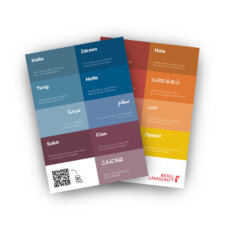To prevent a concentration of power, Switzerland has three independent powers: the legislative power, the executive power and the judiciary power. In Canton Basel-Landschaft, the following authorities exercise these powers:
- Legislative power: Cantonal Parliament (Landrat) (90 members, elected by the public every four years)
- Executive power: Cantonal Government (Regierungsrat) (5 members, elected by the public every four years)
- Judiciary power: Various courts on the level of the canton as well as district courts
The communities also have a legislative power (community assembly or parliament) (Gemeindeversammlung, Parlament) and an executive power (city council or community council) (Stadtrat, Gemeinderat). The national government (7 members) is called the Federal Council (Bundesrat). On the national level there are various courts. The Federal Tribunal is the highest instance where, for example, cantonal rulings can be appealed against.



